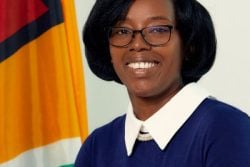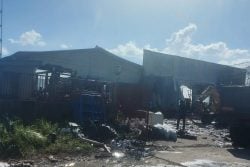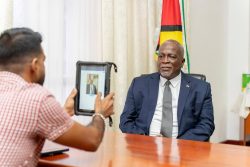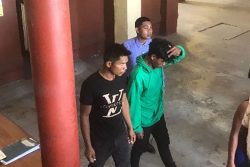VATICAN CITY, (Reuters) – Cardinals begin the process of choosing a new pope in earnest today, holding their first full day of voting for a leader to face a major crisis in the Roman Catholic Church.
The 115 cardinal electors return to the frescoed Sistine Chapel, where they are scheduled to hold two votes in the morning and two in the afternoon, seeking to elect a pontiff capable of facing a string of scandals and internal strife.
When a pope is elected, white smoke will emerge from the chapel and the bells of St Peter’s will peal.
The cardinals were shut inside yesterday for the first time, after a day of religious pomp and prayer to prepare for the task. Only one vote was held on Tuesday night, ending inconclusively as expected, with black smoke billowing from a chimney above the chapel to signal no pope had been elected.
Excited crowds braving rain in St Peter’s Square cheered all the same.
“We thought there might not have been any smoke at all so it was fun to see it. I feel very excited to be here at this historic moment,” said Stefan Elsen, 50, a tourist from Trappenkamp near Kiel in northern Germany.
No modern conclave has reached a decision on the first day, so the lack of an outcome on Tuesday’s single vote was no surprise. The initial vote is seen as a way of filtering the choice down to frontrunners for discussions in following days. Most bets are on a decision by tomorrow although there is still no clear favourite and it could take longer.
No hint is expected to emerge before the pope is chosen.
The Vatican has taken precautions, including electronic jamming devices, to prevent any leaks from inside the conclave.
The new pope will take up a burden that Pope Benedict declared in February was beyond his physical capabilities.
The Church is reeling from a child abuse scandal and the “Vatileaks” case in which Benedict’s butler revealed documents alleging corruption and infighting inside the Curia, or central bureaucracy. It has also been shaken by rivalry from other churches, the advance of secularism, especially in its European heartland, and problems in the running of the Vatican bank.
Frontrunners include the Italy’s Angelo Scola – who would return the papacy to traditional Italian hands after 35 years of the German Benedict XVI and Polish John Paul II – and Brazilian Odilo Scherer – who would be the first non-European pope since Syrian-born Gregory III, nearly 1300 years ago.
Before beginning their conclave yesterday, the cardinals attended a Mass in the imposing St Peter’s Basilica where Cardinal Angelo Sodano, dean of the “princes of the Church”, called for unity. “My brothers let us pray that the Lord will grant us a pontiff who will embrace this noble mission with a generous heart,” he said in his homily.
WHAT KIND OF
POPE IS NEEDED?
In preparatory meetings before the conclave, the cardinals seemed divided between those who believe the new pontiff must be a strong manager to get the dysfunctional bureaucracy under control and others who are looking more for a proven pastoral figure to revitalise their faith across the globe.
Milan Archbishop Scola, who has managed two big Italian dioceses without being part of the Vatican’s central administration, could be well-placed to understand the Curia’s Byzantine politics and introduce swift reform.





